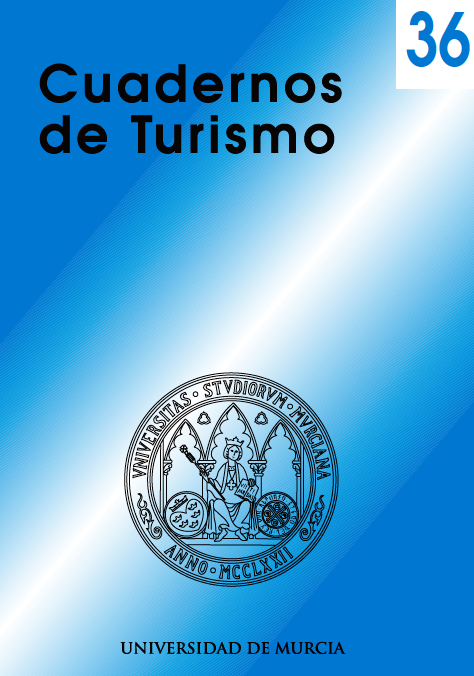Research agenda for tourism using Quantitative Social Network Analysis (QSNA)
Abstract
This work, we examine the literature that has appeared in recent years, in the international scientific journals and books, which has used the Quantitative Social Networks Analysis (QSNA) to study the phenomenon of tourism. In this sense, the interest of this work is that we present in a systematic and orderly way, all the scientific contributions that have used the methods and techniques of the QSNA for tourism analysis; and that make their current research calendar. Therefore, this effort to systematize the research appeared about the topic; allow that any researcher could have appropriate references, to guide their research using the QSNA. But at the same time, we present a proposal to improve the future tourism research agenda, based on the QSNA, so that future researches can provide a framework in which to raise their works and analysis.Downloads
-
Abstract1567
-
pdf (Español (España))976
-
pdf976
Las obras que se publican en esta revista están sujetas a los siguientes términos:
1. El Servicio de Publicaciones de la Universidad de Murcia (la editorial) conserva los derechos patrimoniales (copyright) de las obras publicadas, y favorece y permite la reutilización de las mismas bajo la licencia de uso indicada en el punto 2.
2. Las obras se publican en la edición electrónica de la revista bajo una licencia Creative Commons Reconocimiento-NoComercial-SinObraDerivada 3.0 España (texto legal). Se pueden copiar, usar, difundir, transmitir y exponer públicamente, siempre que: i) se cite la autoría y la fuente original de su publicación (revista, editorial y URL de la obra); ii) no se usen para fines comerciales; iii) se mencione la existencia y especificaciones de esta licencia de uso.
3. Condiciones de auto-archivo. Se permite y se anima a los autores a difundir electrónicamente las versiones pre-print (versión antes de ser evaluada) y/o post-print (versión evaluada y aceptada para su publicación) de sus obras antes de su publicación, ya que favorece su circulación y difusión más temprana y con ello un posible aumento en su citación y alcance entre la comunidad académica. Color RoMEO: verde.





_.jpg)







